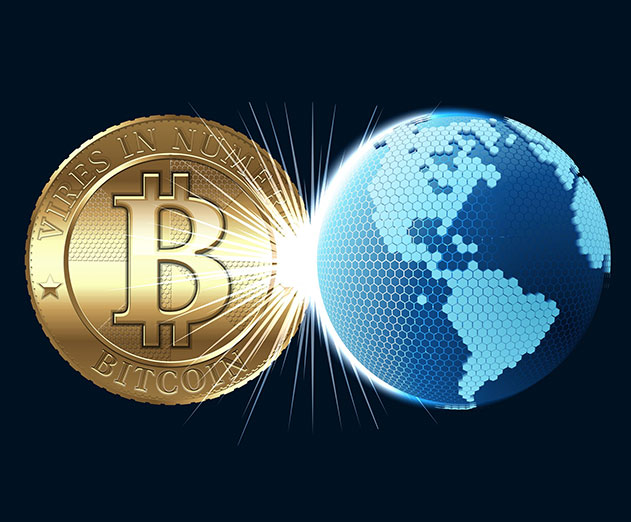Game Development
Using virtual currency in your game requires compliancy too
Wednesday, February 1, 2017

|
Kimberly Culp |

|
Evan Minsberg |
So you’re an app developer. Maybe even a mobile, computer, or console game developer. You’ve got a great idea for a new game - an immersive experience where users will interact in a fully realized world, complete with its own economy and virtual currency. Other developers could even create content for users, get paid in virtual currency, and then cash it back out! Or maybe you just want to further monetize the next Farmville, Candy Crush, or Angry Birds. No compliance problem, right? Only cryptocurrencies like bitcoin have regulatory issues, right?
Wrong.
Depending on the features that you include, an in-app virtual currency may be regulated in the same way as bitcoin under interpretations of U.S. anti-money laundering laws first announced in 2013 by the Financial Crimes Enforcement Network (FinCEN). This article will help you understand the steps to take to avoid obligations imposed by federal anti-money laundering laws.
Does your app or game make you a ‘money transmitter?’
In 2013, FinCEN released guidance explaining its position on money transmission in the context of virtual currency. That guidance explained that companies facilitating the exchange or transmission of cryptocurrencies, like bitcoin, may be considered money transmitters. The guidance also suggests, however, that an app or game developer may be a money transmitter if the developer facilitates the movement of funds between different persons or locations through an in-app virtual currency that either has an equivalent value in real currency or acts as a substitute for real currency (a “convertible virtual currency”). The following are examples of in-app/in-game virtual currency structures that likely constitute money transmission:
- User-Generated Content: An online game features a virtual world that allows players to purchase “coins” that can be spent on virtual items to customize their avatar. To generate additional content, the developer allows access to design tools that permit players to create virtual items and sell them to other players for coins. Sellers can exchange coins with the developer for real currency. The developer has facilitated the movement of funds between the player purchasing the virtual item and the player who designed and sold the virtual item.
- Marketplace: An online game features a marketplace where players can buy, sell, or exchange virtual items they have acquired by playing the game. The game features two virtual currencies, “gold” and “gems.” Gold is acquired through in-game achievements, while gems can be purchased with real currency. Players who sell items on the marketplace for gems can exchange their gems for real currency. The developer has facilitated the movement of funds between buyers and sellers in the marketplace.
- Gifting: An online game or app allows users to purchase “tickets” for real currency that are used to access premium content. Tickets may also be cashed back out into real currency. Two users want to use the premium content together, but only one has tickets. The app permits one user to “gift” tickets to the other by debiting the tickets from one user’s account and crediting the other’s. The developer has facilitated the movement of funds between users.
- Merchandise: An app features “rewards points” that can be purchased for real currency or obtained by using certain features of the app. The developer arranges with various merchants to offer merchandise within the app and lists the price of various items in real currency and in reward points. When a user purchases an item in reward points, the developer pays the merchant in real currency and redeems the reward points. The developer has facilitated the movement of funds between users and merchants.
In each of the above scenarios, unless an exemption applies, the developer is likely a money transmitter subject to BSA/AML requirements.
What is required of apps or games that are considered money transmitters?
By way of background, FinCEN is a division of the Treasury Department responsible for interpreting and enforcing the Bank Secrecy Act and its anti-money laundering regulations (BSA/AML). Certain types of financial institutions have BSA/AML obligations, including banks, casinos, and money transmitters. “Money transmission” is defined as the acceptance of currency, funds, or other value that substitutes for currency from one person and the transmission of currency, funds, or other value that substitutes for currency to another location or person by any means. A remittance provider is a classic example of a money transmitter.
Money transmitters must register with FinCEN and implement a BSA/AML program. BSA-regulated entities are required to appoint an officer responsible for managing their BSA/AML program, collect identifying information from users, monitor for and report suspicious transactions, train appropriate personnel in anti-money laundering procedures, and engage an independent auditor to review the BSA/AML program on an annual basis.
How can you include virtual currency without requiring a BSA/AML program?
To incorporate a virtual currency into a game or app without triggering potential BSA/AML obligations, you should at least make sure that the virtual currency is for in-game/in-app use only, and that you have not provided users with the ability to sell, exchange, transfer, or cash out any virtual currency they have purchased or obtained.
Moreover, the game or app’s terms of use (TOU) should be drafted to include appropriate provisions on the character and use of any virtual currency, including the following:
Legal Status:
Value:
Purchase Price:
Restrictions:
- Cash-out: State that the virtual currency is not returnable, exchangeable, or refundable, either for real currency or for real goods and services. Even if a virtual currency can be purchased for real currency, the TOU should make clear that there is no method by which it can be cashed out.
- Transfers: State that the virtual currency cannot be transferred, gifted, exchanged, or sold between users and that each user agrees not to sell, transfer, or assist other users in selling or transferring virtual currency in any manner.
For additional information on enforceable TOUs in mobile games and apps, please see our recent article in App Developer Magazine.
In general, if you are a software developer, you do not want to be a money transmitter. A BSA/AML program will require an expensive and complicated compliance infrastructure that most developers are not prepared to put in place. If you are developing a game or app that will involve a virtual currency, or are considering developing one, you should determine whether it matches any of the examples above or could otherwise trigger money transmitter status. If so, carefully consider whether any increase in users or monetization is worth the potential cost of regulation.
Read more: http://appdevelopermagazine.com/partner/link/?ref=
This content is made possible by a guest author, or sponsor; it is not written by and does not necessarily reflect the views of App Developer Magazine's editorial staff.

Become a subscriber of App Developer Magazine for just $5.99 a month and take advantage of all these perks.
MEMBERS GET ACCESS TO
- - Exclusive content from leaders in the industry
- - Q&A articles from industry leaders
- - Tips and tricks from the most successful developers weekly
- - Monthly issues, including all 90+ back-issues since 2012
- - Event discounts and early-bird signups
- - Gain insight from top achievers in the app store
- - Learn what tools to use, what SDK's to use, and more
Subscribe here









